| A | B |
|---|
| Alfisols | are soils developing under forest covers of the humid midlatitudes. Eluviation is moderate and base status is fairly high in these soils. Common to the humid continental and humid subtropical climates, these soils are well developed and contain a subsurface layer of clay called an argillic horizon, 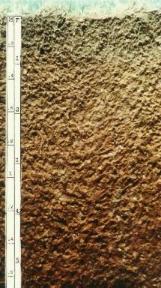 |
| Aridisols | are the soils of arid and semiarid environments where moisture is scarce. These soils are typically light in color as there is little vegetation to add organic matter to the soil profile. Calcification and salinization are important soil forming processes acting in these soils. Soil horizons are weakly developed and sodium is often high in concentration making them alkaline., 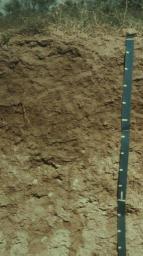 |
| Calcification | occurs in warm, semi-arid environments, usually under grassland vegetation. Soil tend to be rich in organic matter and high in soluble bases. The B horizon of the soil is enriched in calcium carbonate precipitated from water moving downward through the soil or from upward movement of capillary water., 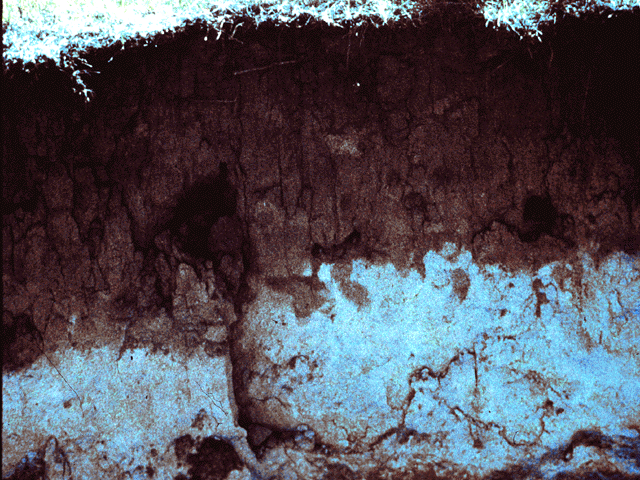 |
| Salinization | occurs in warm and dry locations where soluble salts precipitate from water and accumulate in the soil. Saline soils are common in desert and steppe climate. Salt may also accumulate in soils from sea spray. The rapid evaporation of salt-rich water irrigation has devastated thousands of acres of land., 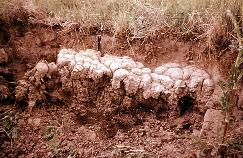 |
| Entisol | soil are weakly developed soils that do not exhibit distinct horizons. Often found in recently deposited parent material, steep slopes, or other environments that inhibits soil development., 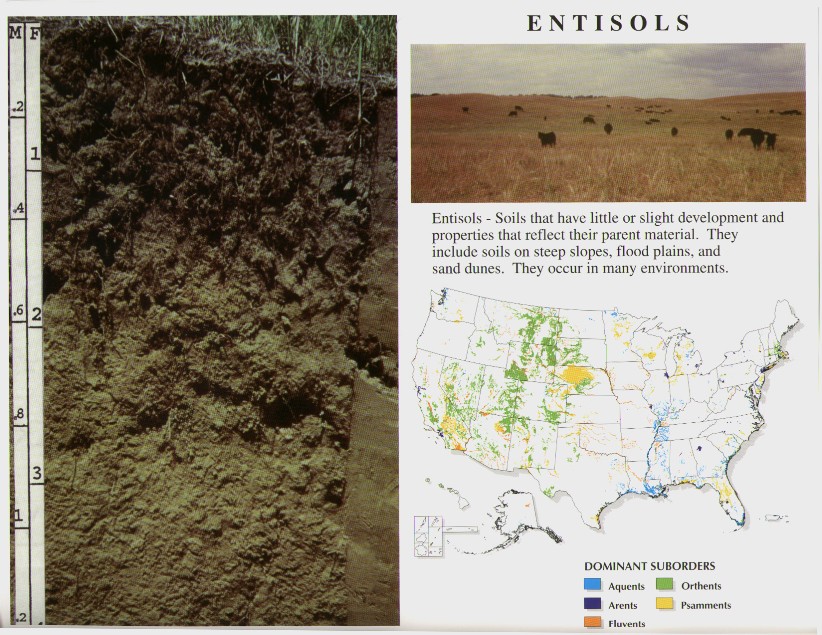 |
| soil horizon | is a layer within a soil profile differentiated by chemical and physical characteristics., 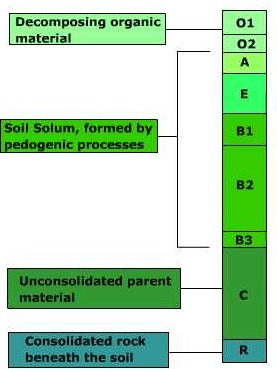 |
| Inceptisols | are soils just starting to show signs of horizon development., 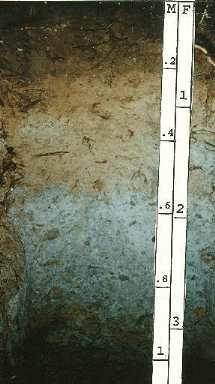 |
| Mollisols | develop under Born under grassland vegetation, these soils are well-known for their dark brown to black organic rich surface layers. Mollisols are high in nutrients and rich in calcium soils among the most fertile soils on the earth. Mollisols are found in the drier portions of the humid continental climate through the steppe climate., 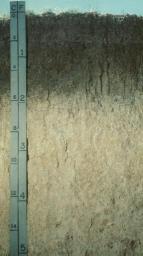 |
| soil texture triangle | is used to classify the texture class of a soil. The sides of the soil texture triangle are scaled for the percentages of sand, silt, and clay., 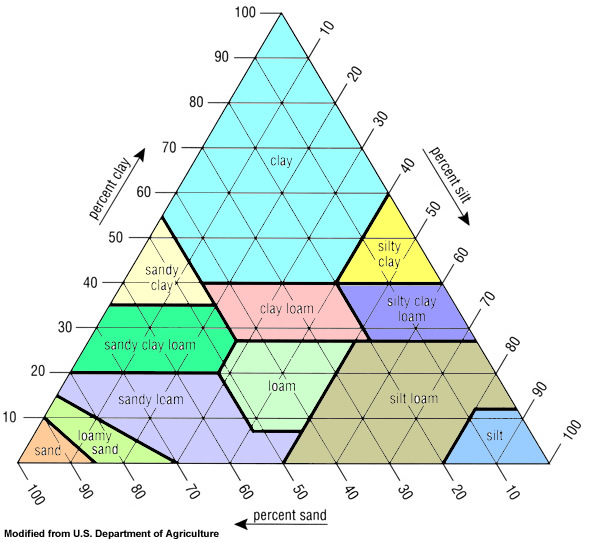 |
| Spodosol | soil is commonly found in cool, moist environments under coniferous forest vegetation. Surface litter composed of pine needles breaks down in the presence of water to form a weak organic acid. Acidic soil water removes base ions in solution to create an acidic soil. Easily dissolved materials are leached from surface layers leaving behind the most resistant material like quartz creating an ashy-grey, near-surface layer. Layers at depth are stained with iron and aluminum oxides., 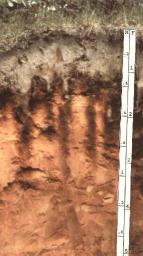 |
| Till | is unsorted glacial drift, composed of a variety of earth materials ranging in size from clay to boulders., 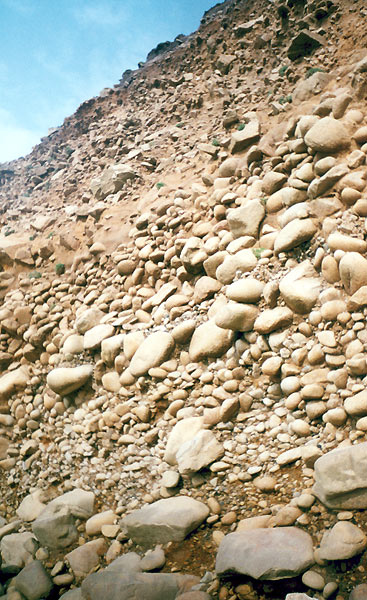 |
| Vertisols | are dark black soils rich in expandable clay minerals. The clay readily swells upon wetting and shrinks when dried. Though found in every type of climate they are often found in steppe and wet/dry tropical climates where the soil develops deep cracks as it dries. Surface fragments fall into the cracks and are "swallowed" when the soil swells during wetting. It then develops an "inverted profile" with organic material typically found near the surface of the profile is now found at depth., 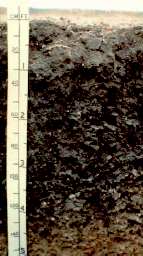 |
| Oxisols | are highly weathered soils of the tropics. Oxisols are formed by laterization. They are noted for their high content of sesquioxides., 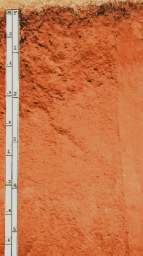 |